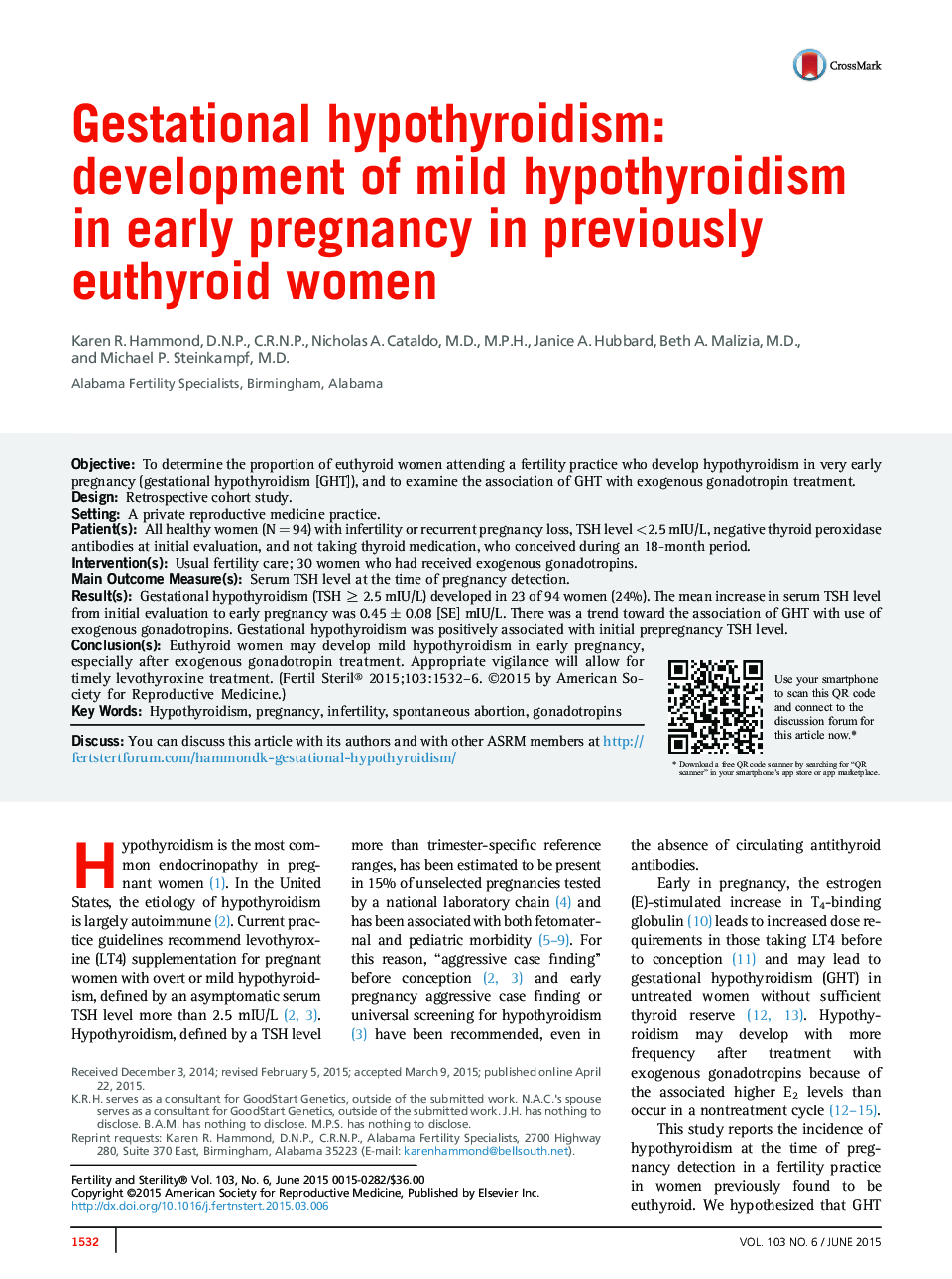| Article ID | Journal | Published Year | Pages | File Type |
|---|---|---|---|---|
| 6179783 | Fertility and Sterility | 2015 | 6 Pages |
ObjectiveTo determine the proportion of euthyroid women attending a fertility practice who develop hypothyroidism in very early pregnancy (gestational hypothyroidism [GHT]), and to examine the association of GHT with exogenous gonadotropin treatment.DesignRetrospective cohort study.SettingA private reproductive medicine practice.Patient(s)All healthy women (N = 94) with infertility or recurrent pregnancy loss, TSH level <2.5 mIU/L, negative thyroid peroxidase antibodies at initial evaluation, and not taking thyroid medication, who conceived during an 18-month period.Intervention(s)Usual fertility care; 30 women who had received exogenous gonadotropins.Main Outcome Measure(s)Serum TSH level at the time of pregnancy detection.Result(s)Gestational hypothyroidism (TSH ⥠2.5 mIU/L) developed in 23 of 94 women (24%). The mean increase in serum TSH level from initial evaluation to early pregnancy was 0.45 ± 0.08 [SE] mIU/L. There was a trend toward the association of GHT with use of exogenous gonadotropins. Gestational hypothyroidism was positively associated with initial prepregnancy TSH level.Conclusion(s)Euthyroid women may develop mild hypothyroidism in early pregnancy, especially after exogenous gonadotropin treatment. Appropriate vigilance will allow for timely levothyroxine treatment.
